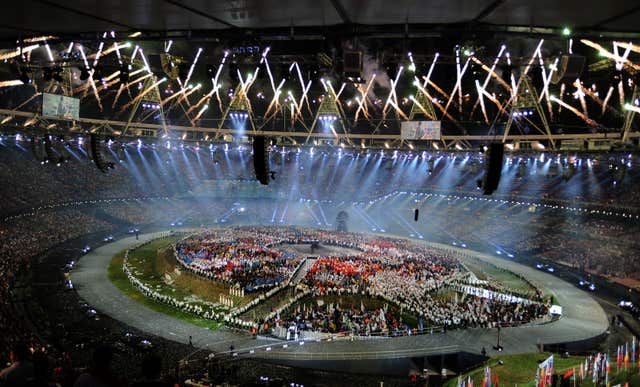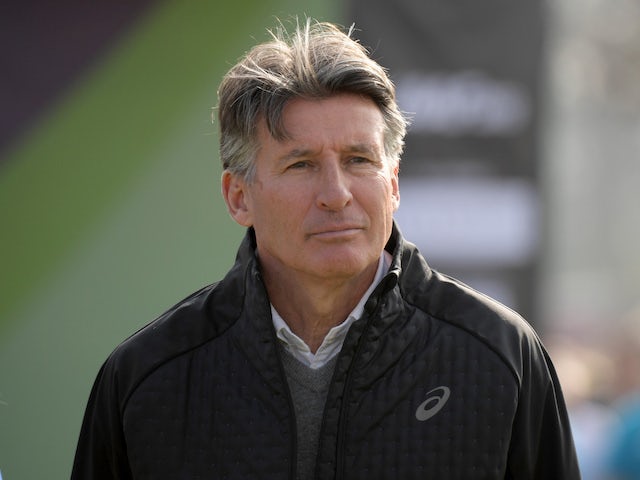Lord Coe, the man who led the delivery of arguably the greatest British sporting occasion of this or any other decade, hopes sport can be “a powerful vehicle for change” in the 2020s.
Coe led the team which bid to host the London 2012 Olympic and Paralympic Games, and then served as chairman on the organising committee.
Just over a week before the Games burst into life on Super Saturday, Coe addressed the nation and the watching world at the opening ceremony.
“For every Briton, just as the competitors, this is our time,” he said.
“One day we will tell our children, and our grandchildren, that when our time came, we did it right. Let us determine, all of us, all over the world, that London 2012 will see the very best of us.
“To watch the footage back in the politically polarised landscape of 2019, it does remind you that we really did do it right, and stood in front of the world celebrating the best of what it is to be British.”
Coe, in an exclusive interview with the PA news agency, recalls the opening of the Games with a mixture of pride and panic.

“It was a suffusion of great excitement, a great relief, when it was through,” he recalled.
“There was slight panic about an hour beforehand – it’s the only time I saw Danny Boyle (the film director who led the planning for the ceremony) or anybody really remotely stressed.
“The ‘money shot’ of course was the (Olympic) rings aflame, and it started drizzling and we wouldn’t have been able to execute that in the rain.
“There was pride really – given where we’ve been as a nation in the last year or two – the fact that everybody so came together for such an extraordinary event in a common cause. There was real political unanimity across the landscape.”
Asked whether he felt society had become more insular in recent years, he said: “I have sensed that. It’s important we do remember how the nation did come together, and it came together across geographical, cultural boundaries in a way that I don’t think I can remember, certainly not in my lifetime.”
Coe, now the president of World Athletics, also talked in his 2012 opening address about the purity of sport, and remains determined to see it play a greater role in encouraging social cohesion.
“I will go to my grave knowing that we don’t really use sport as well as we could,” he said.
“I’ve always believed that the most potent social worker in all our communities is sport and probably the deftest of soft powers, utilised properly.
“I think sport could be used a lot more explicitly. It’s not a universal panacea, I’ve never claimed that, but when we’re talking about social cohesion, when we’re talking about some of the challenges we’ve witnessed on the streets of our cities in the last few years, when we’ve looked at some of the challenges around radicalised communities, sport is doing all that in some of the most challenged neighbourhoods, and it’s often overlooked.
“I do want sport to be recognised as a really powerful vehicle for change.”
Coe hopes the success of London 2012 can demonstrate to administrators of the future what is possible when political differences are put aside.
“We were welcoming the world, and we mustn’t ever lose sight of the fact that we achieved that in an extraordinary way,” he said.
“People still talk to me about the Games. I could walk out of this building up to Victoria Station and I can guarantee someone will stop and talk about the Olympic Games still.
“The nation came together, it didn’t become politically tribal.”
Saturday, August 4, 2012 – Super Saturday – is probably the single biggest reason the memory of the Games lives on, and why Coe still gets stopped to talk about it in the street.
Team GB won six gold medals on that unforgettable summer’s day, with three coming within 44 minutes in front of 80,000 people at the Olympic Stadium track as Jessica Ennis-Hill, Mo Farah and Greg Rutherford all triumphed.
“My Super Saturday started at the sailing down in Weymouth,” Coe recalled.
“Jacques Rogge, the (IOC) president, wanted to go down and see his all-time hero Ben Ainslie, and so I accompanied him down but I politely declined going out onto the water for four or five hours, and sat in the little control room at the sailing centre and watched the opening morning of athletics.
“The fact that we had a completely full stadium was something that just blew me away. Just the relief of seeing everybody at nine o’clock in the morning, in that stadium, 80,000 people, was huge. I was so proud.
“To have got Jess, Mo and Greg in the same window was extraordinary. It was one of those moments – where were you when it happened?
“For a few of us I know we feel very privileged to say we were in that stadium.”








